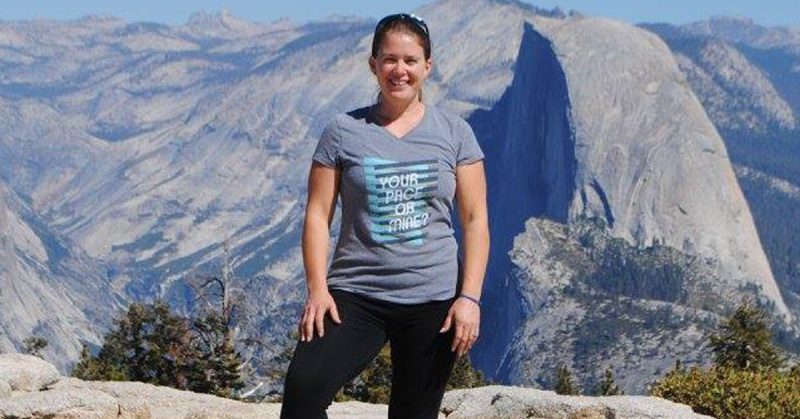It’s a new year, which means a chance for a new you, right? Every January, people make health resolutions and set weight-loss goals. But the stressful effects of 2020 won’t magically disappear from your body when you ring in the new year and pop the champagne.
The past year challenged all of us in many ways. Because of the combination of stressful situations, job loss, quarantine, delayed doctor appointments and closed gyms, many Americans struggled with weight gain in 2020. A summer survey found that 76% of Americans had gained up to 16 pounds during the months of lockdown. This was mainly due to disrupted schedules, increased snacking, added stress and lack of physical activity. People jokingly referred to their weight gain as the “COVID 15,” but the health risks of increased weight are no laughing matter.
Military families are not immune to the health struggles of the COVID-19 shutdowns. In fact, COVID-19 added additional stress to common military challenges. In 2020, many military spouses found themselves stress eating due to the uncertainty of repeated deployment extensions and delayed PCS moves. COVID-19 lockdowns removed support systems, leaving spouses feeling isolated, anxious and alone. Some families waiting on deployment extensions or PCS approval after the Stop Move order found themselves coping with wine and chocolate.

If you are a military spouse who struggled with stress last year, it’s no surprise you may have put on some weight. Perhaps you are ready to shed some of those “COVID 15” pounds but aren’t sure where to begin, since gyms are still closed and your schedule still feels unbalanced. Here are some steps you can take to help you get healthy:
- Make small changes. If you gained weight over the past year, it may take several months to get back to your healthier size. Don’t try to rush things or follow a quick weight loss solution. It’s always better to aim for slow and steady weight loss – around one or two pounds per week – to maintain a healthy weight. Don’t buy into weight loss schemes or products that will leave you frustrated and disappointed. Instead, make a plan with small changes that you can maintain long-term.
- Clean up your snacking. The past year impacted many of our eating, drinking and food-shopping habits. Stress eating, ordering takeout and the lack of a regular meal schedule can all contribute to weight gain. There’s no need to switch to salads or go on a juice cleanse. But you can easily trim pounds when you cut out soda, fast food, late-night snacks and alcohol from your diet. Make a list of healthy snacks or meals to replace the bad ones and buy one next time you go to the store or order your groceries online. By swapping out old foods with a few new foods each week, you will cut calories.
- You don’t need a gym to be fit. When gyms closed during lockdown, it may have affected your exercise routine. Some people invested in weight equipment or treadmills and started working out in their garage. Maybe that was you until you lost motivation. Or maybe you never had the money to start a home gym. The good news is you can get fit without expensive equipment. Walking is one of the best exercises and can contribute to weight loss. Start by walking around your neighborhood for 20 minutes every day. If you want to challenge yourself, turn the walking into jogging. If you aren’t up for that, start a Couch to 5K plan to improve gradually. Need motivation? Ask a friend if they will do socially-distanced walks or runs with you, staying a few feet apart on the sidewalk. Stop making excuses about the gym being closed and develop a new plan that works for you.
- Choose to move every day. If 2020 had you spending way too much time on your couch, then you need to make intentional changes in the new year. Brainstorm simple ways you can get outside or get moving on a regular basis. You can walk around the block, do morning stretches or a yoga routine, visit a local park or nature trail, jog with your dog instead of walking, walk in circles while listening to your favorite podcast, take a dance break a few times each day, play with your kids at the playground or do a body-weight workout. The more you move, the stronger you will become, and those new muscles will help you shed the “COVID 15.”
- Look at your habits. It’s time for a moment of honesty. You probably picked up some bad habits in 2020. It turns out that binge-watching, doomscrolling and stress eating are not good for either your physical or your mental health. When you are trying to lose weight, it’s important to look at all of your habits and how they affect your health: Are you getting enough sleep at night? Do you have people to talk to when you’re feeling down? Are you still pursuing hobbies you enjoy? Write down some small habits you can change, one at a time. Each one brings you closer to overall health.

We are all relieved to say goodbye to 2020 and look forward to a better year ahead. When you make these small adjustments on a steady and intentional basis, you will start to see results. Soon, you can leave the final weight of 2020 behind when you shed the “COVID 15” and enjoy a healthier you!





